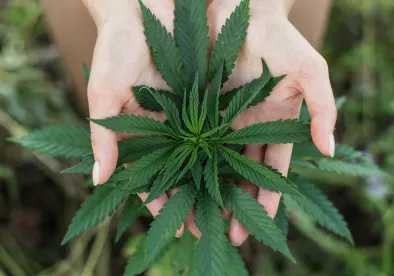Welcome to the second installment of the Editors’ Roundtable, in which our editors – Whitt Steineker, Jay Wright, Hunter Robinson, and Slates Veazey – discuss cannabis issues in the news and take a stab at where the cannabis industry is going in the future.
Whitt Steineker (WS): Neil Young wrote that “Southern change gonna come at last,” and he was being kind of a jerk about it. That’s not out of character, but we’re not here to slander one of the greatest musicians of the last 50-ish years. Rather, we’re here to talk about how Young’s lyrics have proven true in the cannabis market. So, let’s do a rundown of the Southern states where cannabis is coming online at present and where we think it may go in the future. For perhaps the first time ever, let’s put Mississippi first. Slates?
Slates Veazey (SV): Neil Young is a legend, and I’m not sure he was being a jerk at all with those lyrics. But we aren’t here to decipher the true meaning behind his words. In any event, change has certainly come down here in Mississippi. Within the last three months since the application portal opened, the state has issued licenses to at least 18 cultivators, five processors, and 114 dispensaries. Product is being grown with sales anticipated to begin by December 2022. That’s moving. Eat our dust Alabama.
The progress hasn’t been without disruption, however. We are starting to see counties and municipalities across the state pass ordinances and zoning amendments that regulate medical cannabis businesses far beyond the parameters of the state law and regulations. And some litigation challenging those local regulations has arisen. This is certainly something to watch going forward.
Jay Wright (JW): It’s exciting to see how quickly things are moving in Mississippi, and the way that state has made accessibility to the supply side of this market relatively easy will serve as an interesting contrast to some of the other states we’ll discuss today. Given the state’s population, I’m curious whether it will support all of the folks that have been awarded licenses to date or whether we start to see consolidation in the medium term; however, producers in the Magnolia State can look to states like Oklahoma as validating the concept that lower barriers can still lead to a lot of successful businesses operating in this industry.
Hunter Robinson (HR): The disparity between the number of cultivators versus the number of dispensaries in Mississippi seems stark. Perhaps it isn’t – one large cultivator can supply numerous dispensaries. But it will be interesting to see how the Mississippi supply chain takes shape. Mississippi’s full free market program should reach an equilibrium in time, but it may be a bumpy ride for a few years to get there.
WS: Jay, how about you talk to us about Alabama? I know we’re smack dab in the middle of application season. Tell us something that applicants need to know and then make a prediction about something. The more reckless the better.
JW: Given the high amount of interest in Alabama, applicants need to be realistic about their likelihood of obtaining a license. Only two weeks into the period to request applications, 36 groups had requested applications to get one of 12 cultivator licenses, 78 groups had requested applications to get one of four dispensary licenses, and 31 groups had requested applications to get one of five vertically integrated licenses. Even if every group that requested an application doesn’t ultimately submit one, those are pretty long odds before the Medical Marijuana Commission even starts evaluating the merits of the first application.
The interesting outlier here is in the processing space, in which four groups had requested applications to get one of four licenses. Maybe we see some groups pivot into the processing space between now and when the applications are released on October 25.
My prediction, which no one reading this probably wants to hear, is that we see at least one lawsuit challenging the commission’s license awards that leads to a brief delay in bringing marijuana to market in the state.
WS: Unfortunately, I think the likelihood of a lawsuit is high, and the real question for these purposes is how long – if at all – such a lawsuit will delay the commission’s current schedule.
WS: Hunter, how about the Volunteer State? Are y’all really gonna sit back and watch Mississippi and Alabama do this thing without you? It seems out of step for a state that I think most outsiders would think is more progressive on issues like this.
HR: I admit, when I moved from our Birmingham office to our Nashville office, I never thought I’d be moving further away from medical cannabis. It definitely seems out of step. But I don’t expect it will stay that way for much longer.
Legislation passed in May 2021 created a Medical Cannabis Commission, whose purpose is to “serve as a resource for the study of federal and state laws regarding medical cannabis and the preparation of legislation to establish an effective, patient-focused medical cannabis program.” The statute requires that the commission prepare recommendations for “how best to establish an effective, patient-focused medical cannabis program,” along with proposed legislation for the state Legislature.
However, the statute does not yet authorize a medical cannabis program to operate in Tennessee, and the statute states that licenses cannot be issued “until marijuana is removed from Schedule I of the federal Controlled Substances Act.” Perhaps this is glass half full, but I can’t imagine that provision sticking around. It’s easier for me to imagine the tax revenue in Alabama and Mississippi incentivizing the Tennessee Legislature to expedite the path towards state-level legalization if Washington gridlock continues to delay cannabis reform at the federal level.
Hopefully, our Medical Cannabis Commission will keep a close eye on what works and what doesn’t in Alabama and Mississippi – which set up vastly different cannabis programs (limited license versus open license, respectively) – to create a Tennessee program that blends the best of both. In my mind, a limited-license program with a greater number of licenses than Alabama’s program makes a lot of sense.
JW: Let this serve as a reminder to recent Nashville transplants that medical marijuana is a matter of state policy, and the Gulch and East Nashville aren’t among Tennessee’s Grand Divisions. That being said, I have a hard time believing Tennessee is an outlier in which medical marijuana isn’t viewed favorably by a majority of the population across the state, and fully expect to have Hunter keep us up to date on movement on this issue as it develops.
WS: Hoo boy, I am here for all of the Nashville hipster jokes. That said, in my mind the anchor cities in Tennessee nicely complement the more rural areas when it comes to a robust medical program. Hunter, aside from the ironic handlebar mustache crowd in Nashville, is there any statewide polling available in Tennessee?
HR: There is, and it shows Tennessee as a whole has a very East Nashville/Gulch-like view towards cannabis. A 2018 poll conducted by Middle Tennessee State University found that 81% of Tennesseans support some form of legalization, with 44% supporting medical use and 37% supporting adult-use legalization. It seems likely that those numbers underreport current support for cannabis legalization in Tennessee given the nationwide trend towards legalization since 2018.
WS: Let’s wrap up with a discussion about the Carolinas. I have long thought North Carolina has the opportunity to be the sleeping giant of the South, particularly if the state gets the design and implementation of a program right. And South Carolina is fascinating geographically and politically. What do you guys have to offer on this point?
JW: From Murphy to Manteo, North Carolina is a state that will have a lot to offer the medical marijuana industry at some point in the future. The state has a tremendous agricultural industry; major population centers; a large, dynamic, and growing population; and world-class medical facilities and research universities. The state came closer to legalizing medical marijuana than some may have expected earlier this year when the Republican-controlled Senate passed the Compassionate Care Act 36-7 in June, though the bill ultimately died in the General Assembly’s House of Representatives. That bill would have established a Medical Cannabis Production Commission that would ultimately award 10 supplier licenses, each recipient of which could open up to four dispensaries. As we’ve seen in other states, it can take a couple of legislative sessions to get medical marijuana bills through both houses, so I suspect we’ll see another push by reform advocates in the upcoming legislative session, perhaps with different results.
WS: No chance the Carolinas miss out on this. I would be astonished if at least one of the two do not adopt a medical cannabis program in the first half of 2023.







 />i
/>i

